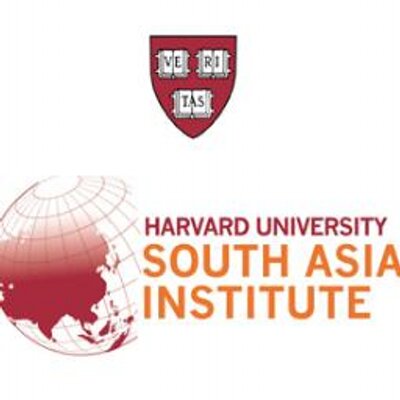The project focusses on three specific areas:
- Improving access to secondary education for disadvantaged and marginalized girls
- Addressing gender-based violence and promoting gender equitable norms
- Urban Livelihoods and empowering Home-based workers in India
The Harvard South Asia Institute (SAI) in collaboration with Tata Trusts hosted an event titled ‘Women’s Economic and Social Rights  in India: ‘Exploring New Collaborations and Engagements’ in New Delhi. The event showcased the outcome of an eighteen-month project on ‘Livelihood Creation in India’ (http://southasiainstitute.harvard.edu/livelihood-creation-project/
in India: ‘Exploring New Collaborations and Engagements’ in New Delhi. The event showcased the outcome of an eighteen-month project on ‘Livelihood Creation in India’ (http://southasiainstitute.harvard.edu/livelihood-creation-project/
). Padma Bhushan Dr. Ela Bhatt, Founder, SEWA was the Chief Guest for the evening who also delivered the keynote address. Professor Martha Chen from Harvard Kennedy School and Professor Jacqueline Bhabha, FXB Director of Research and Professor of the Practice of Health and Human Rights at the Harvard School of Public Health – the Faculty Chairs, shared the project findings and outcomes. The event featured the work of organisations that have been supported through grants and mentoring over the last one year.
The project aims to provide functional training, evolving strategies, showcasing best practices and assisting with scaling, deepening and maximizing impact. The Project team is led by Dr. Shashank Shah, Visiting Scholar, Harvard Business School, Project Director and Fellow, Harvard SAI; and Anisha Gopi, Project Manager, Harvard SAI. The team is also assisted by knowledge partners Shalini Sinha, home-based worker sector specialist of the global network WIEGO (Women in Informal Employment: Globalizing and Organizing); Firoza Mehrotra, senior policy advisor to HomeNet South Asia (a regional alliance of organizations of home-based workers); Sanjay Kumar, director of SEWA Bharat (the national federation of state-level affiliates of the Self-Employed Women’s Association); and Deval Sanghavi, Co-founder, Dasra.
Speaking at the event, Professor Jacqueline Bhabha said, “The generous funding from Tata Trusts has enabled us to work with a lively and creative group of organizations who address issues of educational and gender empowerment within their communities. While the reality of exclusion and discrimination looms large, it has been exciting to learn about insightful strategies for communities to advance their claims and enforce rights they have. This forum in Delhi gives us a welcome opportunity to draw together the lessons learnt from our 18-month collaboration and explore productive avenues for future work.”
Professor Martha Chen, added, “As part of Harvard SAI Project on Livelihoods in India, with generous support from the Tata Trust, we focused on the livelihood needs and constraints faced by women home-based workers, who represent nearly one-third of women workers in India. We partnered with organizations affiliated with both the national and regional networks of home-based workers, HomeNet India and HomeNet South Asia. In two workshops, the organizations shared experiences working with home-based workers to help them access markets as well as secure housing tenure and basic infrastructure services to make their homes into more productive workplaces. During the year, they promoted and documented promising new initiatives. They also met with representatives of the official delegation from the Government of India to UN Habitat III to make the case that urban informal livelihoods should be on the New Urban Agenda. We are delighted to share their experiences and the lessons learned at this forum in New Delhi.”
As a culmination of the project, the Harvard team released three publications which include reflections by subject experts and showcase some of these high impact interventions by participating organisations.
Emphasizing on the relevance of these publications, Dr. Shashank Shah said, “Contributions to these volumes are primarily based on the work done by a dozen organizations that Harvard SAI has proactively engaged with over the last one year. They outline a range of approaches, research studies and policy innovations in the areas of educational, social and economic empowerment of women in India. Together they paint a rich picture of the toolkit available for future scaling by the central and state governments in India. We believe this to be an important contribution of this collaboration between Harvard SAI and Tata Trusts.”
Anisha Gopi, recollected, “An overarching issue that was repeatedly brought up by many organizations was the need for tools to evaluate and document impact. To cater to this requirement for training inputs on research tools, impact evaluation and documentation and a range of other legal, organizational, and social policy issues, the project organized a series of webinars and workshops.”
Presenters at the webinars and workshops included subject experts including Harvard faculty members. The project is also hosting a web portal that will include information and resources generated during this project. It will focus on the above mentioned thematic areas to promote the socio-economic advancement of women. The portal also showcases best practices and innovative interventions, features organizations outlining the work they do, includes developments in technology, training programs and resource material created by organizations, and collates precedents on data collection, research capabilities and data evaluation.





